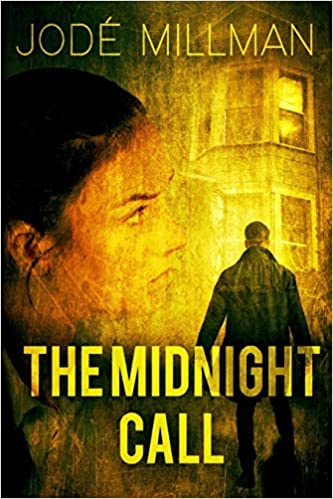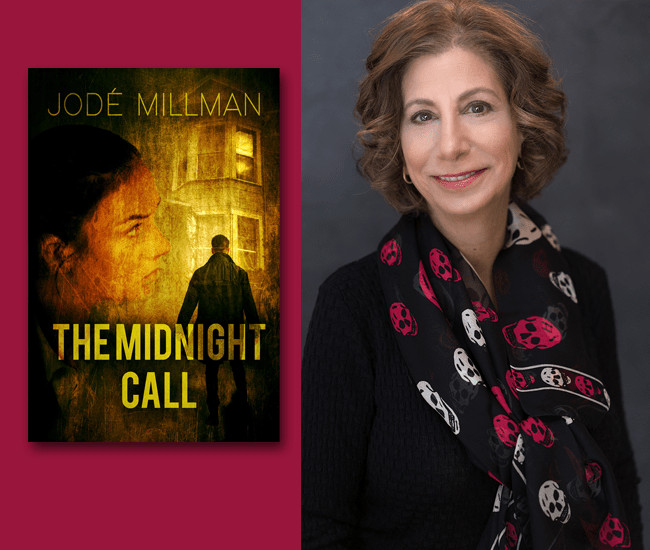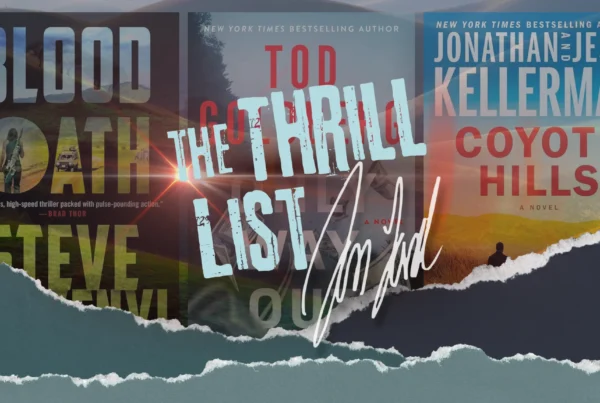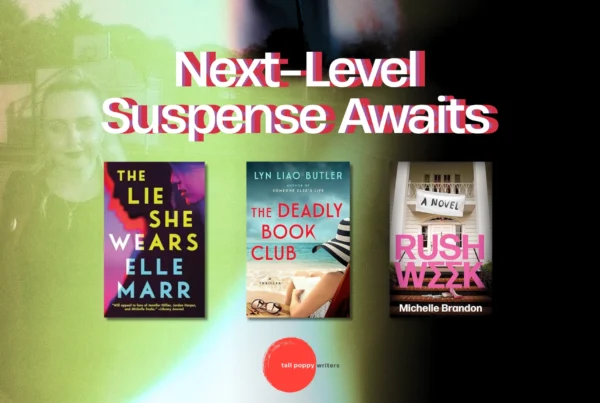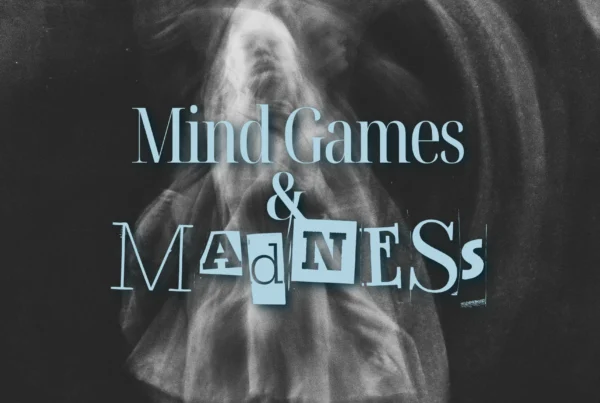The Midnight Call
Consider that Jodé Millman has built a business creating guides on where to sit in major metropolitan entertainment venues. Ok, she’s also an attorney, not an uncommon profession to transition to the thriller genre.
Coming off the successful launch of her debut The Midnight Call in which an attorney (who else) receives an unusual call from her mentor in desperate need of help, Millman reflected on her past as it relates to her writing, and offered some insights into the creative process.
What gave you the idea to use a terrible “midnight call” to begin the story? Have you ever received a call during the night that terrified you?
As an attorney, I’ve received a few catastrophic calls from clients in the middle of the night. It would be their one phone call from jail. Often, there was nothing I could do. But when the phone rings, breaking the silence of the night, the first heart-pounding moments are terrifying.
In The Midnight Call, I wanted to give readers that sense of shock — of my protagonist being awakened in the night from a deep sleep and being told that her close friend had committed murder. It’s a great way to start the novel off with a bang.
As an attorney, how have your personal experiences influenced your narratives?
While I realized that it is important to be an advocate for my clients, it is equally important to be a storyteller. I was the champion of my client’s story, and it was my job to weave a tale that would convince a judge, jury and my adversary that my client in the right.
Over the years, I honed that skill, and I wanted to tell my stories about my characters. As a litigator, I observed, first-hand, the darker side of human nature. Revenge, greed, anger, and betrayal transformed people who once loved each other or worked together into mortal enemies. Observing these intense emotions inspired me to dig deeper into the mystery of the human psyche.
What created the spark to write a novel about the shock of realizing you really don’t know someone you consider an intimate friend?
Have you ever read the snarky Proust Questionnaire in the back of Vanity Fair magazine? Each month they ask a celebrity “What is the trait you most deplore in others?” For me, it’s dishonesty. In The Midnight Call, I combined the trait of dishonesty with an examination of whether we truly know the people who are our nearest and dearest. I wanted my protagonist to be betrayed by almost everyone she knew, and I wanted her to figure out who her true friends and enemies were.
You had known the middle school history teacher in Poughkeepsie, NY, who murdered and mutilated a teenage boy. What were your thoughts about him before and after that terrible crime? And did that episode influence your own writing?
Ten years before the Fentress-Masters murder, Albert Fentress had been my World History teacher at Poughkeepsie High School. He’d been charming, charismatic and engaging to his students and had maintained a sterling reputation in the school district during his teaching career. Naturally, the effects of the brutal, senseless murder rippled through our community as my lawyer colleagues, former classmates, the school district and parents mourned the loss of Paul Masters. Poughkeepsie is a small city, so the grieving family, the attorney charged with malfeasance, the criminal defense attorney, the police and prosecutors were my neighbors and friends.
Surely, the most shocking aspect of the criminal investigation was the brutal murder itself… that a teacher who was surrounded by kids all day could suffer a break with reality, and murder and mutilate a teen.
While I was inspired by this event, The Midnight Call is not a retelling of the crime. I wanted to plant the seed of a teacher who murdered a student, with a twist. I created my own cast of characters within the true-life setting of Poughkeepsie.
What message do you want readers to take away from the novel?
The novel is more of a “Why done it” than a “Who done it.” I challenge readers to examine whether they truly know the people closest to them and whether they would recognize a killer when he or she looked them in the eye. Also, I wanted to examine the lengths that desperate individuals would go to save their own skin at the risk of unscrupulously destroying someone else’s life.
Discuss the different perspectives you present in the novel.
It’s Jessie Martin’s story, but the novel is narrated from multiple points of views. Besides Jessie, we view the world through the eyes of Assistant District Attorney Hal Samuels, who is the lead prosecutor, and Jeremy Kaplan, the ruthless criminal defense attorney. Each character presents a unique view of the crime, as they individually possess knowledge of facts to which the others are not privy. Through these three characters, the reader gets a 360-degree view of the crime and its aftermath.
What is your favorite psychological thriller of all time, or what psychological thriller affected your writing the most?
There are two books that stumped me and served as an inspiration for my novel. In Those Who Wish Me Dead by Michael Kortya, after a teen is hidden in a wilderness boy’s camp to get him off the grid, a manhunt ensues as the forest becomes an inferno. Not only is the story beautifully written, but I was also stymied as to the real identity of the boy.
A second is Dominance by Will Lavender, in which a college literature professor teaches his class by video from a jail cell. When one of the class’s alumnae is murdered, and the classmates start turning up dead, the reader must find a connection between the murders, a famous author and the incarcerated professor before it’s too late.
Tell us something about yourself your fans don’t already know.
I have seen all four Beatles in concert, separately. And I’ve met Ringo Starr. I’ve also attended the Golden Globes, Oscars, and Grammys.
So what’s next?
I’m working on the next installment in my “Queen City Crimes” series, a sequel to The Midnight Call. It continues with Jessie Martin teaming up with her old friend and occasional adversary Detective Ebony Jones to solve the mystery of eight missing women. The novel, Hooker Avenue, is based upon another notorious Poughkeepsie crime that occurred in the late 1990s.
The Midnight Call is now available for purchase.
Buy this Book!
Amazon